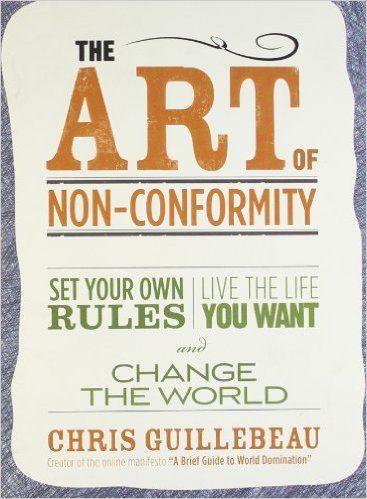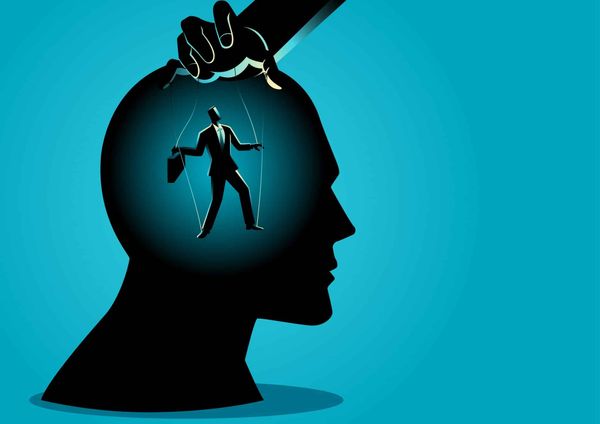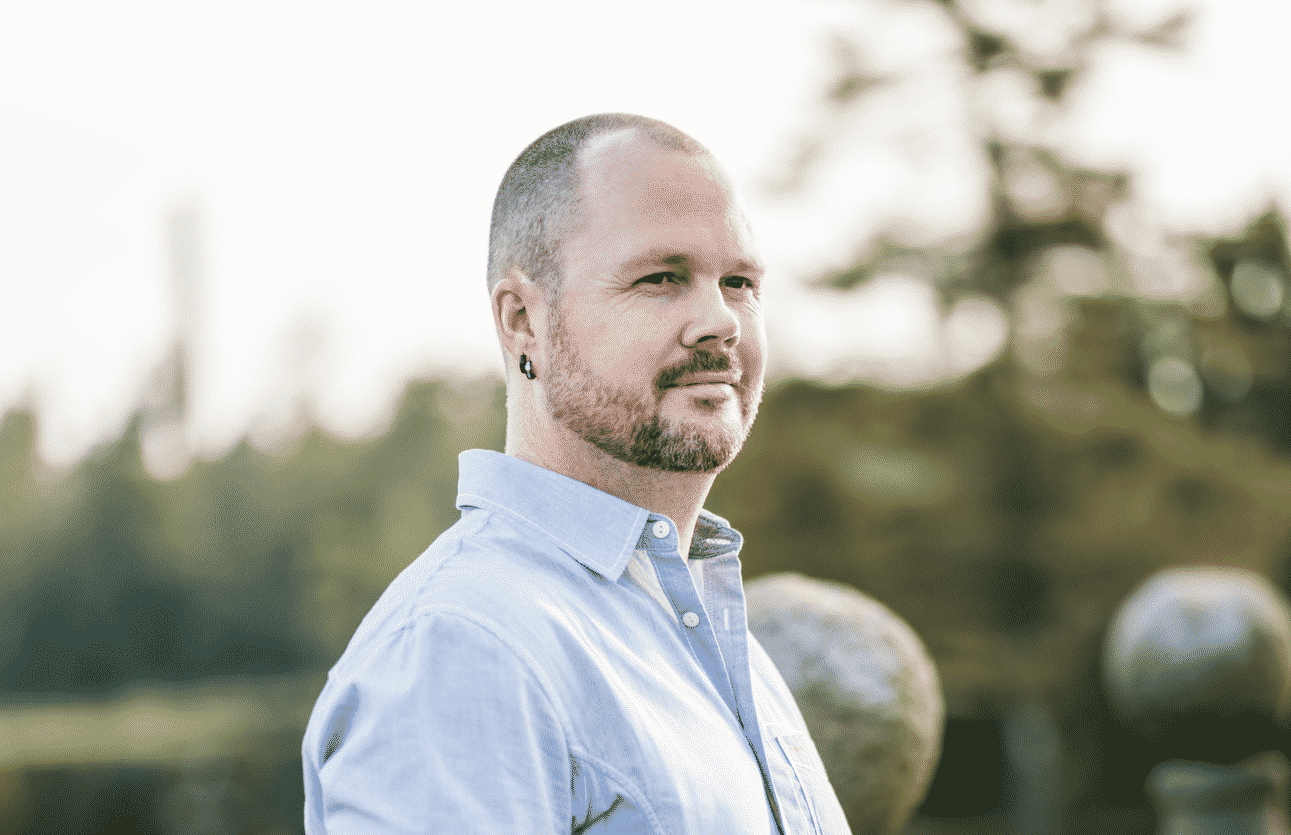Mikey D • • 25 min read
14 Gems of Life Advice That the Herd is too Afraid to Follow

“When your mother asks, ‘Do you want a piece of advice?’ it is a mere formality. It doesn’t matter if you answer yes or no. You’re going to get it anyway. — Erma Bombeck
Everyone has advice for you. Sometimes advice is welcome, and you listen intently. Usually, however, it comes unsolicited, and you reject it.
Especially when it features cliches such as:
“Be nice to others.”
“Max out your 401(k).”
“America is the best country to live in, so don’t be an expat.”
“Be a doctor, not an artist.”
“There are plenty more fish in the sea.”
“Don’t worry about what other people think.”
Gahhhh! Don’t get me wrong, not all of these cliche-soundbites are useless. If people are always telling you to “be nicer to others,” there is a good chance it’s because you’re a dick.
This “life advice” post is different. Yeah, I have advice to share, but it’s not the run-of-the-mill, politically correct, buzzword-laden crap you’re used to hearing. The advice I’m going to give you today is at best socially unacceptable and at worst politically incorrect. You’re unlikely to hear such gems unless it’s coming from someone very close to you, or, in this case, a total stranger on the internet. Hi.
Speaking of strangers on the internet:
Don’t accept advice from strangers on the internet.
Okay, you’ve probably heard this one before. Sue me. But still, see how quickly you can be misled by someone who has no authority telling you what to do with your life?
But seriously. We don’t know each other, and yet I have the gall (the gall!) to presume I can give you advice that is personalized to you and your unique snowflake of a life situation.
As good as my advice may be, the only credible decision-making authority in your life is—you guessed it—you. If you follow my advice, you could come across untold riches and ascend the iron throne. You could also die a painful death. In either case, it is up to you whether you take anyone’s advice. Whenever you act on someone else’s advice, you were the one who weighed your options given the evidence available, came up with a decision, and acted.
Feel free to listen to my life advice if it suits you. But if it doesn’t jive with you, by all means, ignore me! You are even welcome to stop reading. I may be wise beyond my years, but I’m still just some dude in his mid-twenties who hasn’t showered in two days.
Everything in moderation, including moderation.
It is common to hear “everything in moderation.” But when people say this, they ignore a fundamental implication of the cliche, which is that sometimes you shouldn’t do things in moderation.
“The road of excess leads to the palace of wisdom…You never know what is enough until you know what is more than enough.” — William Blake
When people tell you to do everything in moderation, they are contradicting themselves because doing everything in moderation is not moderate—it’s excessive.
I do not dispute that moderation is great… most of the time. In general, you should eat until you’re not hungry, and stop. You should work hard, and stop. You should drink a few beers, and stop.
But the best, most-important experiences of your life are typically the ones at the margin of moderation. Here’s a set of questions to help get my point across:
• Remember that time when you worked 9-to–5, came home, made dinner, read half an hour, and went to bed?
• Remember that time you went to Bonnaroo, partied your ass off for four days, met all sorts of interesting people, slept outside, and learned valuable life lessons?
The first question describes something comfortable. And this kind of “moderate” lifestyle is fine, most of the time. But it is the excessive life experiences that are the most meaningful, most of the time.
For me, I like to set rules and then break them strategically. For instance, I eat healthy most of the time, but when I move into my next apartment, I’m going to binge at the all-you-can-eat Indian buffet across the street every day for a week. Eating “clean” (there is no agreed upon definition of “clean” food) most of the time is obviously the smart move, but I’m going to really enjoy the shit out of that Indian food. And then I can get back to eating “in moderation.” Everything in moderation. Even moderation.
Become more attractive, because it makes life easier for you.
When you become attractive, doors will open to you that were once closed, both financially and otherwise. People don’t like to hear this. There is this perception that you are born with your looks, so being attractive is simply a matter of winning the genetic lottery.
While it is true that the range of your physical attractiveness gets decided at birth, everyone still has a range. Give a supermodel crystal meth for a year and they’ll end up on the lower end of their range. Likewise, give the hunchback of Notredamn a gym membership and the number of a good barber and he’ll have access to his upper range. You can always improve what you’ve got. I’ll get into that in a moment, but first:
(Disclaimer: This topic is hardly gender-neutral. Ladies, the stakes are much higher for you according to the research. Sorry, that’s just the way it is. Right now you can either fight the system or work with the system. Maybe do both. That’s your decision.)
So, how can you become more attractive? And, in particular, how can you become more attractive given that many aspects of your looks cannot be radically altered (at least not without surgery or other drastic measures)?
1) Health. Evolutionarily healthy people are attractive people. In our hunter-gather days, the environment was brutal. Childbirth was often fatal, and cavities could kill you. Seriously. There is no trick for this one. To make yourself healthy, you should become heathy. Read books on nutrition like “The Primal Blueprint,” and join a gym.
2) Hygiene. Imagine one day you meet your ideal-looking person. They look perfect in every way. They sound perfect and dress perfectly. However, when they open their mouth you smell what seems to be a decaying ferret which accidentally fell into the blender two weeks ago. Wanna date them? Enough said. Floss, brush your teeth, shower daily.
3) Style. There are no rules with style. The key is confidence. If you want to go for a nerdy look or scruffy look or sophisticated look, own it and it’ll work.
As for dressing fashionably, my girlfriend could also confirm that I’m not the most qualified person to give this kind of advice. So here are a few links that can help.
For men:
• 9 Secrets for Dressing Well: A Roadmap for the Style Rookie
• Dressing Sharp & Casual: The Comprehensive Guide for Young Men
For women, I suggest you do your own research, but I’ll bet you’re already less clueless than your male counterparts in this regard. I am also not in the best position to vet style articles for women, but these should get you started:
• Style Basics 101: Fashion Tips On How to Improve Your Style
• 101 Fashion Tips and Tricks Every Girl Should Know
It’s worth having a look to see if there are any style ideas you jive with.
Consider experimenting with drugs.
Some drugs are illegal, and others aren’t (tobacco, caffeine, acetaminophen, etc.). Which drugs are legal and which aren’t is largely arbitrary—ignoring the politics and money involved, I should say. Some illegal drugs are far healthier than some legal ones. The classic example, of course, is that marijuana is far less dangerous than both alcohol and tobacco.
Many illegal drugs have serious benefits, both physical and mental. If you don’t experiment, you’ll never get to recieve these benefits.
Read this: Microdosing -- The Revolutionary Way of Using Psychedelics
(Disclaimer: I’ve never done anything illegal, nor am I encouraging you to break the law. This discussion is purely hypothetical. Follow this in Amsterdam or Portugal maybe, but certainly not in the United States or anywhere else where a particular drug is illegal.)
Rather than focusing on the benefits that certain drugs provide (MAPS.org is a good place to start. Also, see this), I’ll give some basic advice on how to minimize the potential harms inherent in some drugs (again, both legal and illegal). Those who do not heed this advice may end up in jail, dead, or sucking dick for crack. You’ve been warned.
Keep both your dosage and frequency moderate. Sure, you may want to take more at times (remember: everything in moderation, including moderation), but there are serious risks to putting some substances in your body. Know your limits, start with small amounts, and don’t do it every day.
Do your reasearch. Some people are idiots. They don’t know what the proper amount is, or that substance X will kill you if mixed with substance Y, or that substance Z should look/smell/taste a certain way and what’s in front of them does not. Do not be an idiot. Learn as much as you can about what you’re taking before you take it or learn the hard way.
Your setting matters. You should always make sure to be in a controlled and positive environment, with people you like and trust. This will make your experience safer and more enjoyable. And it is generally a good idea to have a sober person around.
If medical attention is necessary, get it. If you’ve done your research (and you’d better have), then you should have a good idea of when this is the case, and what situations might be false alarms. In general, you should err on the safe side. Use common sense here. If you weigh 140 pounds and you’ve already had fifteen shots, it’s time to stop, not time to eat an ounce of mushrooms and go skydiving. That’s not excess, that’s suicide.
Don’t listen to your teachers.
Teachers, like everyone else, are just people. And people are fallible. The education system has systemic flaws. Your math teachers are probably okay to listen to, but your history teachers should be taken with a grain of salt.
Education is highly politicized. There are corporate and political elites with a vested interest in creating a self-serving narrative. It is unlikely that a government school system would teach you things that challenge the moral “high ground” of the state and those who influence it. This is why your classes teach little about the genocide of Native Americans, the political positions of the anti-federalists, or that Abe Lincoln was a racist tyrant.
Even if you ignore the pernicious influence of politics on education, there are good reasons to focus more on educating yourself rather than absorbing what your teachers have to say. Mass education is not designed to teach you how to think. Here’s how Jordan Bates described it in a recent High Existence article:
“By all counts, it would seem that I did exceedingly well, and in many ways, I did. I undoubtedly benefited from my drive to achieve what was dangled before my eyes. But in hindsight, there’s a giant, glaring problem with my educational experience: I hardly did any real thinking, and I didn’t really give a damn about learning. At least not for most of that time. For the vast majority of my “education”, I wasn’t asking deep, probing questions; I wasn’t generating original ideas about the topics at hand; I wasn’t engaging in creative problem-solving; I wasn’t imagining multiple perspectives or divergent possibilities; I wasn’t struggling to make sense of the world around me.”
But it is real thinking, the ability to ask difficult questions, and the ability to question your own (and other people’s) assumptions that constitutes the most important part of being an educated person. There are many intelligent people who still end up being—pardon the phrase—“sheeple,” because they are incapable of forming their own thoughts.
The antidote for this, whether you’ve been listening to your teachers or not, is to become an autodidact—someone who takes responsibility for their own education. Bates elaborates:
“To be autodidactic doesn’t mean that one cannot have teachers or collaborators. Far from it, other people are of immeasurable value. My argument, rather, is that auto-didacticism is an attitude one brings to learning, an attitude which is essential to gaining substantive insight both within and beyond the confines of traditional educational institutions. This attitude consists of a willingness to question all of one’s assumptions and preconceived ideas, a strong desire to learn and to apply what is learned, and a fiery love of knowledge in and of itself.”
You should constantly be reading, particularly about topics that you know little about and even more so ideas that challenge you. Cultivate an understanding of multiple viewpoints rather than just the “mainstream” ones.
As a corollary, I’d like to throw out another piece of politically correct life advice: don’t go to college.
Or at least strongly consider not going. College is great for some people, but a terrible idea for others. Unfortunately, everyone is heavily pressured into going to college these days.
Here are four reasons to think twice:
• Unless you get a very good scholarship, college will likely throw you into massive debt—and student loan debt cannot be expunged by declaring bankruptcy. There’s no escape. And that can then force you into accepting a crappy job just so you can keep making payments, month after month, year after year.
• There are jobs that pay well with only an Associate degree, or with no degree at all. If you teach yourself computer programming, you can often find better work than what college grads in humanities would find. Besides, according to the Federal Reserve, very few college graduates are even using their college degree—46% of recent college grads are underemployed. That means nearly half of recent graduates work in jobs that don’t require a college degree.
• There are social benefits to college, but people out of college have social lives too. Just like anyone else, you can get involved in organizations of like-minded people and develop solid bonds. Similarly, with the advent of things like Tinder and OkCupid, your sex life need not be lacking just because you don’t live in a building with 250 other 18-year olds.
• The combination of rampant political correctness and administrative bureaucracies makes college a terrible place for intellectual exploration. Students and professors alike do not feel that it is safe to express unpopular views on campus, as a recent survey shows. For ridiculous examples of the suppression of free speech on campus, see this. My “favorite” was the professor who was forced to take down a Firefly poster because the slogan on it was deemed a violent threat.
I’m not saying college is bad, or that teachers are bad. But there are reasons to be skeptical, and you shouldn’t passively accept the “facts” as they are given to you.
A fantastic alternative is to independently learn about things that interest you. You can find free (or cheap) resources online about almost any subject very easily. Here is a massive list of online learning resources, plus High Existence has a couple lists as well:
• How and Where to Educate Yourself Online
• Educate Yourself Without School
Happy learning!
Worry about what “society” and other people think of you.
You’ll often hear the advice, “Don’t worry about what other people think of you!” What people really mean when they say this is that you shouldn’t identify with what other people think of you. I think that piece of advice is better represented by the cliché “Don’t take it personally.” For more on this, see HE’s article on The Complete Guide to Not Giving a F**k.
At times you absolutely should worry about what other people think of you. Taking into account what other people think of you is valuable—it gives you feedback that, by definition, you could never give yourself. Yeah, in the end you still have to decide how important each piece of feedback is, and that isn’t always easy.
Let’s say someone tells you that you suck at something you want to excel in. You could either bury your head in the sand and pretend you didn’t hear them, or you can take it on board, examine their claim and adjust your behavior accordingly. If this someone is your boss, and they think you suck because you are lazy, you may want to take that into account if you want to keep your job. If this someone is a former friend who dislikes you because you slept with his girlfriend, you should use this feedback to work on your integrity. If this someone is a person who dislikes you because of a particular value that you hold dear, then there is no need to stop liking yourself on their terms. Of course, if many people dislike you because of a particular value you espouse, you may want to reassess that value. Alternatively, you may want to strengthen your commitment to that value. You get to decide how you act and that includes whether or not you ignore negative feedback.
Don’t listen to the news.
“Think of how stupid the average person is, and realize half of them are stupider than that.” – George Carlin
Americans who don’t watch the news are better informed about current events than people who watch Fox News, CNN, and a whole host of other mainstream “news” sources. Perhaps that’s because Fox, MSNBC, and other news sources make statements that are false approximately half the time, according to an analysis by PunditFact.
But how can this be? When people watch TV news, they aren’t trying to become better informed. They are trying to be entertained (see Neil Postman’s excellent book Amusing Ourselves To Death for more on this subject). “Terrorists Blow Up The East Coast To Stop The Zombie Advance” and “Global Warming Spreads To Mars” garner far more attention than any reasoned analysis of important issues ever could. As Martijn Schirp colorfully puts it in his stellar article Why Avoiding the News Makes You Smarter:
“Take the modern century phenomenon of fame. While it is very important to have social structures in place that keep a collective memory of a person’s reputation alive, we want a trustworthy and ethical mayor and we want to hold a corrupt government accountable, we don’t need to know about every single fart of Justin Bieber. It has no personal relevance for us, whatsoever. They are empty calories for our mind.”
But mainstream news is not just useless—it’s worse than useless—it’s harmful. The media is simply a highly efficient propaganda machine. Most red-blooded Americans would hotly contest this assertion, with their argument boiling down to, if I may put it syllogistically:
1) We live in America.
2) From (1), we are free and everything about our country is great.
Unfortunately, that’s not quite how things work around here. Did you know that the United States is ranked 46th in the world in press freedom? Or that only six gigantic corporations control 90% of what you watch, hear, or read on the news?
Believe it or not, money and power play a role in what makes the front page and what gets completely ignored. Do you really expect a news organization owned by conglomerates with huge stakes in the military-industrial complex to publish news that is anti-war? And when the government controls access to sources, do you really think they are going to provide information to independent journalists like Glenn Greenwald, Robert Parry, and Seymour Hersh, or are they going to provide it with strings attached to the lapdog corporate media which is only too happy to lie in order to promote an agenda?
It gets worse… far worse. Here’s something I wrote previously that sums this up:
“And I’ve only barely scratched the surface of the government’s direct involvement in manipulating the media, where a recent survey found that 64% of journalists believe that they are being spied on by the US government. There is copious evidence that the CIA regularly works to manipulate the media. For starters, there is well documented collusion between the New York Times and the CIA. This isn’t too surprising, however, since they regularly push fabricated evidence in attempts to promote warfare and militarism.
“The NYT may be among the worst of news organizations in this regard, but they are hardly alone. Operation Mockingbird, which began in the 1950s, involved (among other things) recruiting journalists to push the CIA’s version of ‘news’, and you can be sure similar work is being done today. In fact, a well-known German journalist claims he published stories written by the CIA under his name.”
My recommendation is to read lots of philosophy and psychology to develop a more informed perspective. The “facts” of any given historical occurrence—something that might be considered news—will always be disputable. But theory is a whole different animal, and one which can be analyzed far more consistently.
Don’t buy a house.
After you graduate from college, you are supposed to get a job and then buy a house within the next couple years. This is the standard narrative… The American Dream.
While this life trajectory is a dream for some, I’m sure, buying a house is not a decision that you should make by default—without thought. There are very good reasons not to buy a house, and given that it could be the biggest financial decision of your life, you really ought to give this some thought.
Here are a handful of reasons you may want to avoid buying a house:
• Buying a house usually requires a large down payment. You’d better have the cash to pay up, with enough in reserve for an emergency fund.
• When you own a house, you are responsible for maintenance. Everything will break, so make sure you factor that into your price (and stress) calculations.
• Buying a home makes it a LOT harder to move, so put a kibosh on any travel plans you had. And if you happen to need to flee the country, it’s going to be way more difficult.
• If you are looking at buying a home as an “investment,” I strongly suggest you reconsider. For most of us, a house possesses all the worst qualities of an investment: it is illiquid, highly leveraged (usually), and drastically reduces the diversification of your portfolio. The tax benefits aren’t always as good as they sound. And if you are one of the people who believe that housing prices will always continue to go up, I have one word for you: bubble.
A major reason why I don’t like the idea of buying a house is that even when you own your house, you don’t really own your house. Say what? Here’s the thing: even when you “own” your house, you have to pay property taxes. The amount of these taxes will vary considerably and will usually be lower than rent costs. But if you need to pay someone else in order to have them not forcibly come take your property, is it really yours? Morally speaking, yes. Practically speaking… I’m not so sure.
That said, there are good reasons to buy a house too. This is not something to be dogmatic about. But my advice (as socially unacceptable as it may seem!) is to put a little bit of thought into your decision. A house may not be a good idea for you, and you shouldn’t be pressured into thinking that it is.
Don’t vote.
“But if you don’t vote, you have no right to complain!”
Holy fucking shit fucks, that may honestly be the stupidest thing I’ve ever had the displeasure of hearing over and over again. How can people who have actual brain matter continue to believe this claptrap?
When you vote, you are signaling your complicity to an unjust system, which makes you partly responsible for it. Let’s say you vote for Politician A, and then A goes ahead and does something you don’t like. You just helped put that asshole into power! It seems a bit hypocritical to complain about that. Let’s say that instead, you voted for Politician B. At least you didn’t directly help put A in power—but you did indirectly. By validating the fallacious idea that democracy grants “the majority” the right to be total dicks. If you didn’t vote, at least you didn’t contribute to an unjust system. Complain away!
Besides, it’s not like voting makes a difference. If you think it does, then I would refer you to a basic book on probability, as well as to research done by a couple of smart dudes from Princeton who have shown that America is in fact an oligarchy.
If the elite want something to happen, it will happen, regardless of whether you or even a large percentage of the population disagree and vote. Far more effective is nonviolent direct action which garners sympathy and publicity. Unfortunately, most Americans have been neutered and have lost their will to fight back.
While it flies in the face of America’s civic religion, I must emphasize: democracy is a utopian system, and it does not work. If you want real change in this country, voting might just be the least effective way to make it happen. On the other hand, you can get one of those trendy “I voted” pins as a consolation.
Be a quitter.
When I tell you to be a quitter, don’t take that as a license to be a wuss. What I mean is that we often overextend ourselves into areas that we don’t care much about. When this happens—and it happens all the time—you should strongly consider quitting.
So much of our lives are wasted doing things that don’t conform with our values or our actual goals in life. For instance, a lot of people hate their jobs. Many of these people will often fantasize about quitting, but never entertain a serious thought about doing so. And yes, quitting ain’t easy, particularly if other people are depending on you, but far too many people view it as impossible, not merely difficult. Rather than finding a way to make it happen, they just keep doing what they hate.
Read this: The Quick 12-Step Guide to Quitting That Job You F**king Hate
People will do the same kind of thing with smaller commitments too. They won’t “quit” their toxic relationships. They won’t “quit” reading a book that they started, even though they find it boring. They won’t “quit” some side activity that they’ve lost their passion for.
There are a number of reasons for this. For big decisions like quitting your job (or never getting one in the first place), people are often simply afraid. Understandable, but that’s no excuse to not make positive changes in your life. Another problem is the “Sunk Cost Fallacy”—once you’ve already invested in something, you feel like you must keep going, even when it doesn’t make rational sense.
Some forethought and planning can help overcome these problems, and so can Harry Browne’s Starting From Zero Technique. The basic idea is that we get ourselves stuck in certain mental traps which cloud the way we view and handle our lives. Instead, imagine a clean slate, completely dissociated from your current commitments and obligations. Flesh out, in detail, what your ideal life would be like. What would you do on a day to day basis? Then cut back to your present life. How do you spend your time now? You’ll want to take full stock of your assets and liabilities (time and financial).
What exists in your current life that doesn’t in your ideal life? Cut those things out. What exists in your ideal life but not your current one? Do what you need to do to add those things in. Obviously, getting to your ideal life this way isn’t trivial. But the main difficulty is an internal mental block—people have a really difficult time separating themselves from whatever obligations they currently have. Sometimes, you just really need to quit.
Stop thinking that you’re special, because the world owes you nothing.
While it may at first sound like a very depressing piece of life advice, it is quite liberating once you understand it. So long as you feel that the world owes you something, you are constantly liable to be unhappy.
Far too many people feel entitled. I’m not even talking about politics or social justice or any of that stuff. I mean in their personal lives. People have certain expectations about how much they should get with a given amount of effort. These expectations may be fair and reasonable, but the world rarely works out “fairly.” You don’t control others.
No one else is living your life for you. And no one else is obligated to give you happiness, love, money, or anything else. It may not sound like it, but this is a wonderful thing. It helps free you from expectations.
If nobody is obligated to be your friend, then you having friends is a testament to the fact that you have qualities that make other people happy to be around. Take advantage of this knowledge. Explore yourself, figure out what it is about you that draws people to you, and do more of it.
On the other hand, some people may be dicks to you. That’s their prerogative. They don’t owe you respect. But you don’t owe these people respect either. You are not obligated to make yourself miserable on anyone’s behalf. Learn to avoid them and remove them from your life; stop expecting people to be who they are not.
While the rest of the world may owe you nothing, you owe yourself everything. Anything you want in life—so long as it doesn’t involve expecting other people to be someone else—is yours for the taking. You may never quite reach your goal, but hopefully whatever happens, it’ll be one hell of a ride.
Other people may or may not help you on this journey. If they do, it’s because they want to help you. Be proud, knowing that you have earned the help or love or friendship from others. But never take it for granted; you may have earned it, but you must constantly be earning it. Nobody is obligated to continue being your ally.
Stop trying to collect on the things you think you’re entitled to. Instead, spend time with the people who want to give it to you anyways. I must once again give credit to Harry Browne for this sage advice.
Believe in “conspiracy theories.”
A man marries a wealthy woman, takes out a life insurance policy on her, and then she dies a few months later in a mysterious accident. The man gets remarried to another wealthy woman, takes out another insurance policy, and the second wife dies in another mysterious accident.
If you were an investigator assigned to this case, you would most certainly want to check out the husband. The evidence is purely circumstantial, yes, but your instinct is to think that he could have something to do with these deaths.
But when presented with a conspiracy theory, almost everyone will react in the opposite way. Despite the existence of good reasons to investigate a peculiar coincidence further, once the term “conspiracy theory” is applied to something, all rational thought about the matter is shut down.
People who are dubbed “conspiracy theorists” are thought to have some kind of mental disease. But all a conspiracy theory amounts to is a theory of wrongdoing by public officials that has yet to be substantiated by the officials themselves. Given the prevalence of wrongdoing by public officials, and given the tendency to not want their wrongdoing known, is it not probable that there exist many conspiracies?
In an ironic twist, the popularization of the term “conspiracy theory” can be traced back to a CIA campaign to discredit critics of the Warren Commission report in the years after JFK was assassinated. No, really. The plan was outlined in CIA document 1035–960.
This is a subject that deserves a post of its own, because there isn’t enough space to give it adequate attention here. By definition, the vast majority of conspiracy theories are not real. But things that were once conspiracy theories have gone on to become widely accepted truths. Dick Cheney may not be a space-lizard, but that doesn’t mean that 9/11 wasn’t an inside job, or aided by American officials, or known to American officials and allowed to happen, or simply gross incompetence that was covered up.
You don’t need to accept the “official” story. And when everyone is insisting that you do, it’s a sign that you should continue probing deeper. The truth is out there. ☺
Feel bad about things. You’re not supposed to be happy all the time.
All else equal, most of us hope to be as happy as possible for as long as possible. But to live a good life has little to do with having a constant smile on your face. If smiles and laughs were all that human beings wanted, why are there movie genres outside of comedy that we pay money to watch?
Most people don’t want to die young. If you are like most people in this regard, that means you will be around to witness the death of people you love. My apologies if reading that is depressing—but that’s the point. Intimately tied up with the human experience is negativity.
This is a good thing. Rather than being afraid of negative emotions, embrace them. They can provide you with valuable feedback. If you’ve fucked up, feel bad about it. Then do what it takes to make things right, forgive yourself, and move on.
Remember: there is more to a happy life than happiness itself. If you’ve ever read Brave New World or Man’s Search For Meaning, you know that endless happiness is not an intrinsically valuable goal. Happiness must be supplemented with a healthy dose of meaning.
Philosopher John Stuart Mill said:
“I never, indeed, wavered in the conviction that happiness is the test of all rules of conduct, and the end of life. But I now thought that this end was only to be attained by not making it the direct end. Those only are happy (I thought) who have their minds fixed on some object other than their own happiness; on the happiness of others, on the improvement of mankind, even on some art or pursuit, followed not as a means, but as itself an ideal end. Aiming thus at something else, they find happiness by the way.” (Mill, 1873, Chapter 5)
Other emotions besides happiness play a strong role in helping you lead a happy life. If you have ever visited Yad Vashem, Israel’s massive Holocaust memorial and museum, you understand what I mean. Few people leave Yad Vashem feeling warm and fuzzy. Nevertheless, I am happy to have gone there. I derived meaning from the experience, and came away happier because of it. Meaning + pleasure = happiness, and meaning isn’t always pleasurable.
Don’t respect “authority.”
There are many people who presume they know what’s best for you. Worse, many of these people believe they have a legitimate right to make you do what they want.
This is pure, unadulterated bullshit.
Just because your parents told you to do something, your boss or your teacher told you to do something, or your government told you to do something, it does NOT mean that you need to do that thing. Sure, you must factor in the consequences of disrespecting “authority” into your decision-making process, but that’s it. The status that this other person or entity possesses relative to you is relevant only insofar as it affects you, and no more.
If you are making the decision about whether or not to engage in one of the many victimless crimes out there, the fact that it is illegal should not hold any sway over your decision. The legality in and of itself is irrelevant; what you must consider is what will happen to you if you’re caught and how likely that event is to occur.
This idea flies in the face of years of social conditioning and for that reason may be hard to internalize at first. What is important to recognize is that every person, regardless of real or perceived status, is still just another person. You have no intrinsic obligations to act as they wish.
I would consider my mechanic to be an authority on cars, in the sense that he is an expert. This is a separate and distinct meaning that I am not concerned with here. If you are on a ship that starts sinking and the captain tells you to get to the lifeboats, you should probably go do that. But not just because the captain told you to do it, but rather because you decided it would be the right move.
You are the ultimate decision-maker for every action you make. You have the rightful claim to ignore the advice, prodding, or even coercion of others. Again, there will be consequences which you must consider. But just because the President of the United States and every Fortune 500 CEO tells you to take a step to the left, you have every right to ignore them, step to the right, or spin around in circles.
Do not obey orders. Do not think a certain way because other people told you to. Do not close your mind, do not stop asking questions, and don’t be afraid to live by your own rules.
Some Final Socially Unacceptable Life Advice
If you’ve made it this far, surely you’ve noticed a sort of pattern with this advice. If I could sum it all up in one horrible, ridiculous cliche, it would be this: be yourself. But when people tell you to “be yourself,” what they usually mean is “keep doing the things you’ve been doing that don’t work.” Instead, be yourself by asserting yourself, thinking for yourself, and living your life unapologetically.
I can’t tell you what to do. John Steinbeck said, “You know how advice is. You only want it if it agrees with what you wanted to do anyway.” Perhaps this struck a chord with you, and perhaps it didn’t. If you don’t agree with the worldview presented above, that is okay. But make sure you disagree with it because you actually disagree with it, not because it happens to be socially unacceptable.
For more advice on non-conformity . . .

We recommend The Art of Non-Conformity: Set Your Own Rules, Live the Life You Want, and Change the World by Chris Guillebeau. If you’ve ever thought, ‘There must be more to life than this,’ The Art of Non-Conformity is for you. This empowering book defies common assumptions about life and work while arming you with the tools to live differently. You’ll discover how to live on your own terms by exploring creative self-employment, radical goal-setting, contrarian travel, and embracing life as a constant adventure.
You can buy this book on Amazon or check out a wealth of similarly-transformative books at the Stairway to Wisdom. Click on “About” for a free trial!








